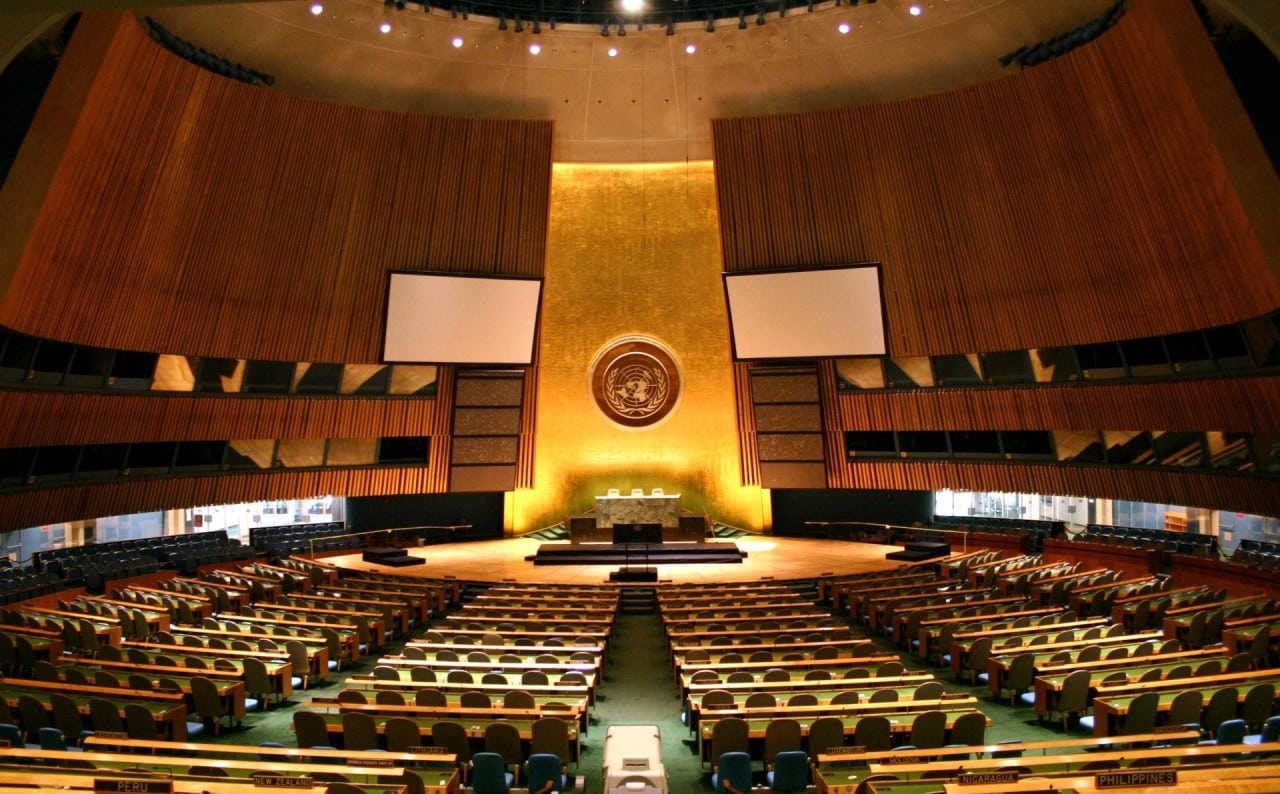
The United Nations First Committee voted Thursday to begin negotiations next year on a nuclear weapons ban treaty, a major global push toward nuclear disarmament strongly opposed by the five nations that are simultaneously the permanent U.N. Security Council members and the recognized nuclear-weapon states.
A total of 123 countries voted in favor of the Austrian-led draft resolution, which calls for the U.N. to convene a conference next year to negotiate a legally binding nuclear-weapon prohibition instrument and encourages all U.N. member states to participate. Another 38 countries voted in opposition – including the United States, United Kingdom, Russia, and France – and 16 abstained, including China.
China, for its part, said it remained committed to nuclear no-first-use and that total elimination of nuclear weapons would take time.
Sweden, one of the countries voting in favor of ban treaty negotiations, argued for nuclear disarmament in the midst of a deteriorating security environment and expressed frustration with lack of progress in this area.
The conference will convene in New York from March 27-31 and June 15-July 7 of 2017, the resolution says. The conference will then submit a report on its progress to the General Assembly’s 72nd session next September.
Robert Wood, U.S. special representative to the Conference on Disarmament, said in remarks to the First Committee ahead of the vote that the United States “does not accept the premise underlying the call to negotiate a legally binding instrument” banning nuclear weapons.
“We disagree with the practicality of their approach,” Wood said of the resolution’s supporters, calling a nuclear weapons ban “polarizing” and lacking in verifiability. Calling for step-by-step reductions on the path to disarmament, Wood said the U.S. is ready to take additional measures such as negotiating bilateral stockpile reductions with Russia or a fissile material cutoff treaty.
Vladimir Yermakov, deputy director of nonproliferation and arms control for Russia’s Foreign Ministry, also said ahead of the vote that adopting the draft resolution would have “fatal destructive repercussions” and would undermine existing disarmament mechanisms, particularly since none of the nuclear-weapon states are willing to participate.
The U.N.’s Open-Ended Working Group on multilateral nuclear disarmament negotiations in August adopted a report recommending nuclear weapon ban treaty negotiations, but the nuclear weapon states did not participate in the working group’s meetings.
The Obama administration had made it clear it would reject any U.N. resolution that would commence negotiations in this area. A State Department spokesperson previously said that “absent from a ban treaty is a verification regime that accounts for the fact that the confidence level in verification must increase as the quantity of nuclear weapons fall.”
The European Parliament on Thursday adopted a nonbinding resolution in support of ban treaty negotiations by a 415-124 vote and 74 abstentions. The parliament cited deteriorating relations between nuclear-armed states, as well as Russia’s threat to use nuclear weapons, as reasons to encourage states to reduce their stockpiles of nuclear weapons and their role in military doctrines.
The U.N. First Committee on Thursday approved other disarmament-related resolutions, sending them to the General Assembly. These included one asking the General Assembly to establish a nuclear-weapon-free zone in the Middle East, another to ask the Conference on Disarmament to begin negotiating an international convention prohibiting the use of nuclear weapons, and to call on all countries to prevent the use of nuclear weapons due to humanitarian consequences.